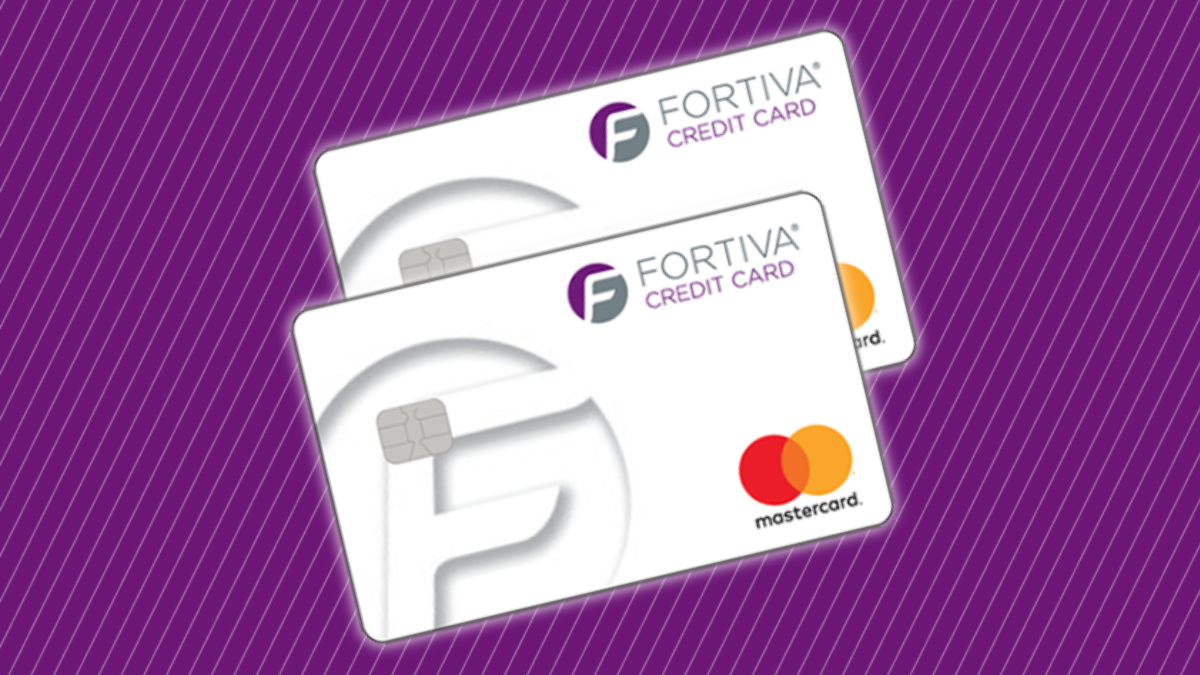Finances
Financial Wellness: Tips for Achieving Financial Stability
Discover essential steps to financial health, transforming your relationship with money and building a solid future.
Advertisement
Discover what it takes to ensure the financial health of your finances!

Promoting financial well-being entails embracing prudent financial practices and altering money-related behaviors to attain stability and freedom in one’s finances.
This encompasses four crucial facets: immediate financial matters, long-term financial considerations, existing financial autonomy, and prospective financial independence.
Attaining financial well-being not only alleviates stress but also fosters innovation, fostering a harmonious balance between professional and personal life.
You will be redirected to another website
You’ll receive messages for less than 1 week, with a maximum of 1 message per day. You can unsubscribe anytime by replying STOP. By submitting this form, I confirm that I am 18+ years old and agree to the Privacy Policy and Terms and Conditions. I also provide my signature, giving express consent to receive informational messages via automated emails, SMS, MMS text messages, and other forms of communication. Message frequency may vary as part of our good-faith effort to respond to your inquiry. Message and data rates may apply. Text STOP to cancel. I understand that my consent to receive communications is not a condition of purchase and that I may revoke my consent at any time.
Grasping the Essence of Financial Wellness

Financial well-being refers to the capacity to navigate one’s financial affairs in a manner that diminishes stress levels and enhances the overall quality of life. It is a relative measure of how well an individual manages their finances, rather than an absolute measure of wealth or income.
This is not just about having a lot of money, but rather about having the ability to manage one’s finances in a way that supports their goals and needs.
What distinctions exist between short-term and long-term financing?
Short-term finances refer to a person’s ability to manage their daily expenses, pay bills on time, and avoid accumulating debt. Long-term finances, on the other hand, pertain to a person’s ability to save for retirement, invest in assets, and plan for future expenses.
Present financial freedom involves having enough money to enjoy life and pursue one’s passions, while future financial freedom involves having enough money to retire comfortably and enjoy a worry-free life.
Critical Elements for Financial Wellness
To enhance their financial health, individuals should prioritize various essential aspects of financial wellness. These components include:
- Budgeting and Saving: Creating a budget and sticking to it is crucial in managing finances. It aids individuals in comprehending the destinations of their financial resources and pinpointing opportunities to streamline expenditures. Additionally, saving plays a crucial role in establishing an emergency fund and strategizing for long-term objectives such as retirement.
- Debt Management: Effectively handling debt is a pivotal element of achieving financial well-being. It is important to understand the different types of debt and how to manage them effectively. This includes making timely payments, negotiating with creditors, and avoiding high-interest debt like credit cards.
- Investing: Investing is an important way to build wealth over time. It is important to understand the different types of investments and their associated risks and rewards. Individuals should also have a plan for their investments based on their goals and risk tolerance.
- Financial Literacy: financial literacy involves acquiring the knowledge and competencies essential for making well-informed decisions in the realm of finances. It includes understanding financial concepts like interest rates, credit scores, and taxes. Improving financial literacy is key to improving financial wellness.
By focusing on these key components, individuals can improve their financial wellness and reduce stress related to money management.
What steps can I take to attain financial wellness?
Attaining financial well-being necessitates a blend of financial acumen, self-discipline, and strategic planning. It involves setting financial goals, creating a budget, automating finances, creating an emergency fund, and saving for fun.
By adopting these effective money habits, individuals can achieve financial stability and freedom, reduce financial stress, and create a better quality of life.
Creating a Budget
Crafting a budget stands as a pivotal stride in the journey toward financial well-being. Without a budget, it is difficult to track spending, identify areas for improvement, and set financial goals.
Within this segment, we’ll explore two fundamental measures for formulating a budget: monitoring both income and expenditures, and establishing financial objectives.
Tracking Income and Expenses
Initiating the budgeting process involves the initial action of monitoring both income and expenses. This step involves recording all sources of income and expenses for a given period, such as a month or a year.
Observing income and expenditures aids individuals in recognizing their spending patterns and pinpointing areas where they can make reductions.
One way to track income and expenses is by using a spreadsheet or a budgeting app. These tools allow individuals to categorize their expenses and income, making it easier to identify areas where they can reduce spending.
Indeed, some budgeting apps even link to bank accounts and automatically categorize transactions.
Establishing Objectives in Financial Planning
The subsequent stage in budget creation involves establishing financial goals. These goals assist individuals in prioritizing their expenditures and striving for long-term financial prosperity.
Financial objectives can vary in duration, ranging from short-term goals like clearing credit card debt to long-term aspirations such as saving for retirement.
In delineating financial goals, it is crucial to adhere to the SMART criteria, ensuring they are specific, measurable, achievable, relevant, and time-bound.
For example, instead of setting a goal to save money, a SMART goal would be to save $500 per month for six months to build an emergency fund.
To sum up, the formulation of a budget stands as a pivotal stride in the pursuit of financial well-being. Through diligent tracking of income and expenses and the establishment of financial goals, individuals can assert command over their financial affairs, steering themselves toward the attainment of enduring financial prosperity.
Managing Debt
Managing debt is a crucial aspect of financial wellness. Debt can be a source of stress and anxiety, but it doesn’t have to be. By implementing debt reduction strategies and understanding credit scores, individuals can take control of their debt and improve their financial well-being.
Approaches to Minimize Debt
There are several strategies that individuals can use to reduce their debt. A frequently employed tactic is the snowball method, wherein individuals prioritize settling their smallest debt initially before progressing to larger debts.
This method can help individuals gain momentum and motivation as they see progress in paying off their debts.
An alternative approach is the avalanche method, wherein individuals concentrate on clearing debts with the highest interest rates as a primary focus. This method can help individuals save money in the long run by reducing the amount of interest they pay over time.
It’s crucial to emphasize that there is no universal or one-size-fits-all approach to reducing debt. Individuals should choose a strategy that best fits their financial situation and goals.
Gaining Insight into Credit Ratings
Credit scores play a significant role in an individual’s ability to obtain credit and loans. A credit score serves as a numeric reflection of an individual’s creditworthiness, determined by their credit history. A higher credit score enhances the likelihood of approval for credit or loans with favorable terms.
Enhancing one’s credit score involves making timely payments, maintaining low credit card balances, and refraining from opening numerous new credit accounts simultaneously. Regularly reviewing credit reports for errors and promptly reporting any inaccuracies to credit bureaus is also imperative.
By implementing debt reduction strategies and understanding credit scores, individuals can take control of their debt and improve their financial well-being.
Investing and Saving
Financial wellness involves not only managing debt and expenses but also investing and saving money effectively. Here are some tips to help you get started:
Retirement Planning
Strategizing for retirement holds significant importance in the realm of financial well-being. Initiating retirement planning is a timeless endeavor, with the belief that the sooner one commences, the more advantageous the outcome.
Participating in a 401(k) plan, when available through your employer, stands as one method to save for retirement. A 401(k) plan allows you to contribute pre-tax dollars, which can lower your taxable income.
Some employers may also match a portion of your contributions, which can help your savings grow even faster. Another option is to open an IRA (Individual Retirement Account). IRAs offer tax advantages and a wider range of investment options than 401(k) plans.
Establishing a Financial Safety Net
Establishing an emergency fund constitutes a vital component of financial well-being. This fund, essentially a savings account, serves as a financial buffer to address unforeseen expenses like medical emergencies or unexpected car repairs.
Financial experts often advocate for maintaining an emergency fund equivalent to three to six months’ worth of living expenses as a prudent precaution. To build an emergency fund, start by setting aside a small amount of money each month.
You can also automate your savings by setting up a direct deposit from your paycheck.
Maintaining a clear distinction between your emergency fund and regular savings account is crucial to prevent unintentional expenditures on non-emergency items.
In essence, both investing and saving stand out as integral elements of financial well-being. By planning for retirement and building an emergency fund, you can help ensure a secure financial future.
Protecting Your Wealth
Protecting your wealth is just as important as earning and growing it. Lack of adequate protection leaves your financial strides vulnerable to swift erosion in the face of unforeseen events.
Two essential components of protecting your wealth are insurance and estate planning.
Insurance Essentials
Insurance is a crucial tool for protecting your wealth. It furnishes financial safeguarding against unanticipated occurrences, encompassing accidents, illnesses, and natural disasters. The right insurance policies can help you avoid financial ruin and give you peace of mind.
There are several types of insurance policies that everyone should consider. These include:
- Health Insurance: This type of insurance covers the cost of medical treatment and can help protect you from high medical bills.
- Life Insurance: Life insurance offers financial security for your loved ones in the unfortunate event of your passing. It can help cover expenses such as funeral costs, outstanding debts, and living expenses.
- Disability Insurance: Disability insurance provides income replacement if you become disabled and are unable to work. It can help you pay your bills and maintain your standard of living.
- Homeowners/Renters Insurance: This type of insurance protects your home or rental property and its contents from damage or theft.
- Auto Insurance: Auto insurance provides financial protection if you are involved in an accident or your vehicle is stolen.
Estate Planning
Estate planning involves the systematic preparation for the transfer of your assets after your demise. It is an essential part of protecting your wealth and ensuring that your wishes are carried out.
A pivotal document in estate planning is the will. This legal instrument delineates the desired distribution of your assets after your passing, and it can additionally designate guardians for your children while outlining specific details regarding your funeral arrangements.
Another essential component of estate planning is a trust. A trust is a legal entity tasked with holding and overseeing assets on behalf of a designated beneficiary. Employing a trust can assist in sidestepping probate, reducing tax implications, and guaranteeing the alignment of asset distribution with your specified wishes.
In conclusion, protecting your wealth is crucial to achieving financial wellness. Insurance and estate planning are two essential components of protecting your wealth. By taking the time to understand your insurance needs and creating a comprehensive estate plan, you can help ensure that your financial progress is not derailed by unexpected events.
Trending Topics

Fortiva® Credit Card Review: An Objective Examination
The Fortiva Credit Card: Understand its features, benefits, and potential drawbacks. Make informed decisions for your financial health.
Keep Reading
First Digital Mastercard® Review: Apply even with a low credit!
The First Digital Mastercard® review introduces you to a credit card with 1% cash back on all purchases and no security deposit required!
Keep Reading
Don’t Let Limited Credit Hold You Back: Choose the Credit Card Tailored for You
Discover the best credit cards for limited credit and start building your credit history while enjoying rewards. Find the right card for you!
Keep ReadingYou may also like

Apply for PREMIER Bankcard® Secured Credit Card: Quick process!
If you want to apply for PREMIER Bankcard® Secured Credit Card, you must know you can apply in just a few minutes at the official website.
Keep Reading
Discover it® Chrome Credit Card Review: Road Perks!
Explore our Discover it® Chrome Credit Card review and see how to earn 2% cash back on gas and dining, plus no annual fee.
Keep Reading
Wells Fargo Reflect® Card Review: Extensive APR intro!
Dive into our Wells Fargo Reflect® Card review and see how you can benefit from a lengthy low APR period, plus zero annual fees.
Keep Reading